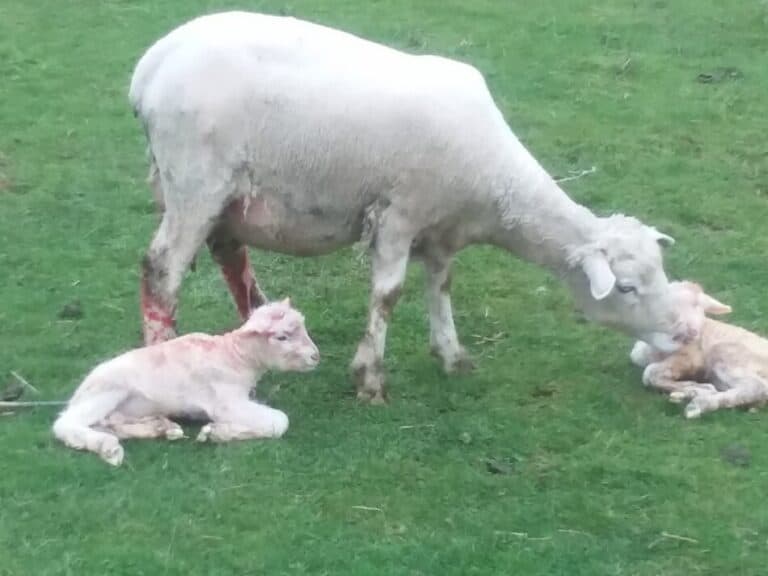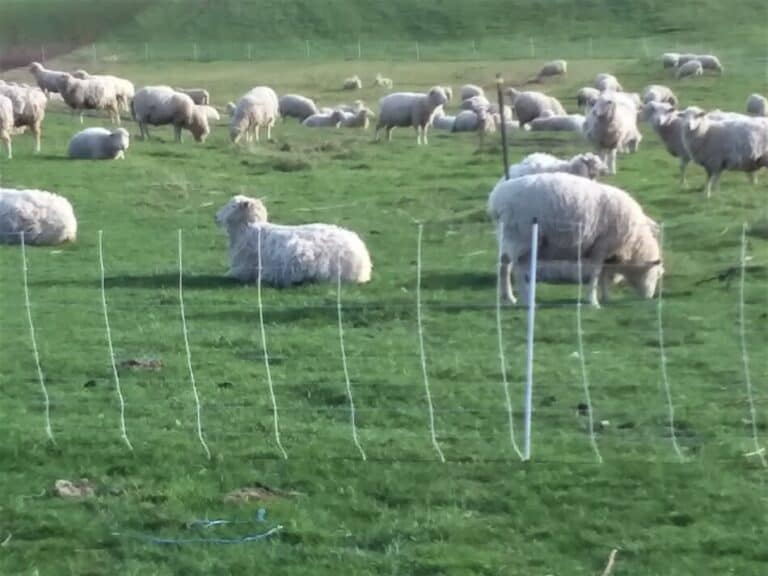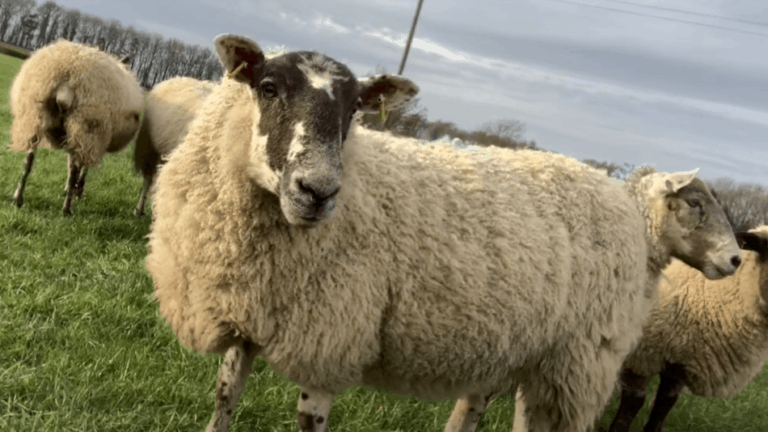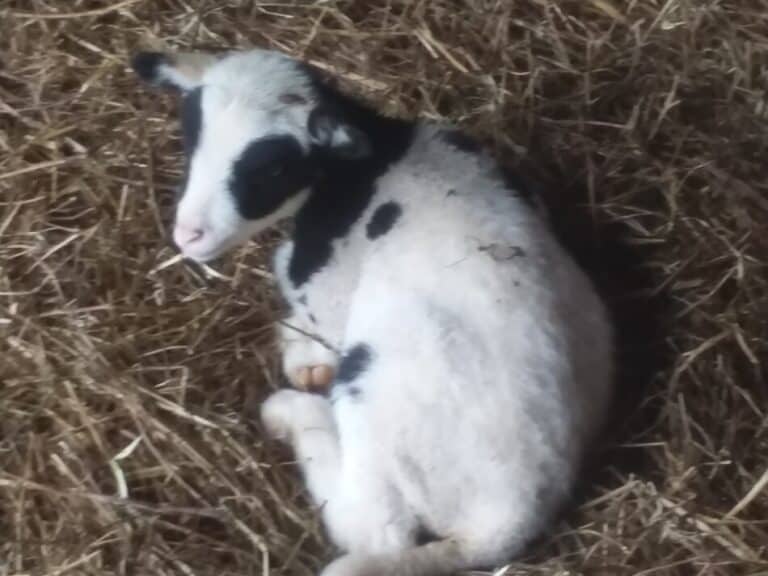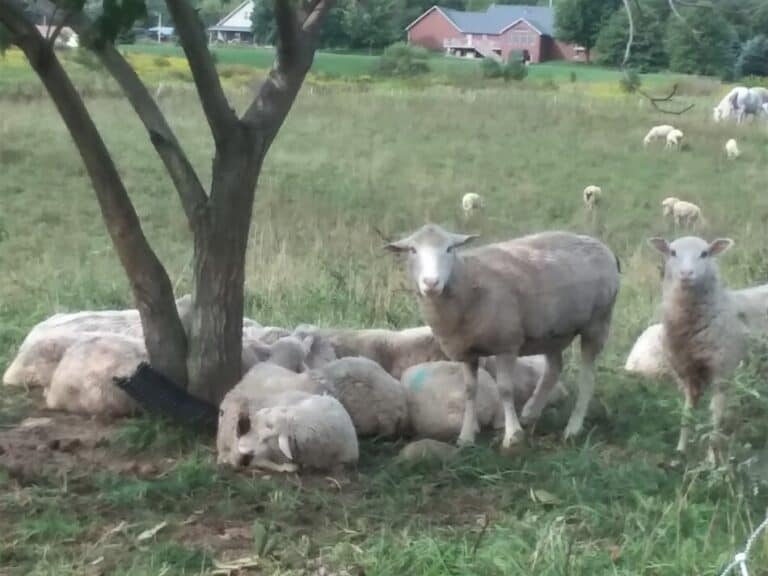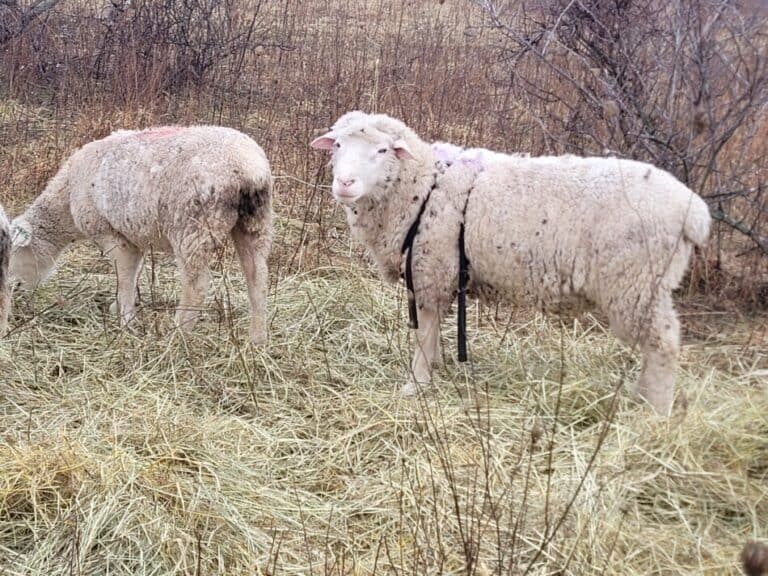Why Do Sheep Need Shepherds?
When you see a flock of sheep, in person or even on a video, you may be wondering why the sheep need the shepherd at all? Can’t the farm sheep mostly take care of themselves?
Sheep need shepherds to provide protection against predation, harsh weather and parasites. Shepherds also provide medical care when and if needed and ensure a nutritionally appropriate supply of food throughout the year.
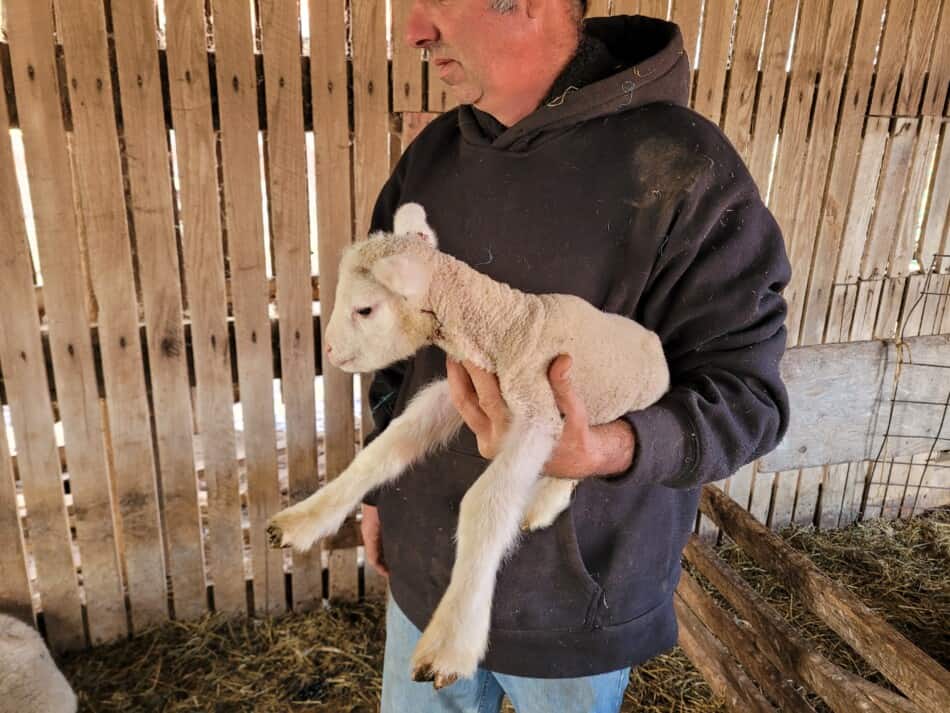
Sheep need shepherds for protection
One of the main things sheep need a shepherd for is protection. Sheep are predator magnets and that is the first thing that folks think of when asking what a flock needs a shepherd for.
Predation is just one of the things that a shepherd protects the flock from. Here are a few more things that the shepherd protects the sheep from:
- other sheep
- weather
- bugs
- poisons
- bad decisions
Are Sheep Easy? Answers From A Shepherd goes into the basics of caring for the flock and the daily work that shepherds do to raise sheep.
Predators love sheep and lambs
Sheep are predator magnets, especially lambs. Predation can come from the ground for coyotes, wolves, fox, bobcat, etc., as well as from the sky in the case of larger birds like eagles or black headed vultures.
Other animals that you may not consider to be predators, like domestic dogs, are also a risk to the flock, especially in areas where dogs run off leash next to sheep pastures.
A shepherd keeps the predators away from the flock by spending time in the flock as well as putting other predator management solutions like guardian dogs in place to work for the flock when the shepherd is not there.
A shepherd also makes sure the flock is in the best place to stay comfortable and safe, which reduces stress, which keeps the sheep healthier. Healthy sheep can do a better job of avoiding predators.
Sheep Predator Losses gives examples of predation losses listed out by predator in Utah. Each area will have different predators, but this will give you an idea predation on sheep.
Sheep compete with each other
Sheep feel secure with other sheep, so they choose to live in groups, but without a shepherd those other sheep are also competition, especially when it comes to scarce resources, like limited food.
For instance, in wild sheep when spring is late in arriving, all of the sheep still need to eat everyday even when all of the left over grass from last growing season is eaten.
In the wild, this type of situation quickly weeds out the weak, they die or are eaten.
For domestic sheep, things are different.
The farmer or shepherd provides the food so all of the sheep can eat what they need. Even in times when the wild foragers of the area are short on food, the farm sheep are fine.
Another place where the shepherd reduces the likelihood of sheep hurting one another is when there are multiple breeding age rams and one or two ewes in heat.
The rams will compete with each other by headbutting, which can result in injury and occasionally death. When the shepherd sees this behavior, he can intervene to prevent the problem from continuing.
Can You Keep Rams With Ewes Year Round? goes into figuring out if and when you need to remove the ram from your flock.
Weather extremes can kill sheep
Harsh weather kills sheep, especially the young ones, like newborn lambs.
A shepherd can drastically improve the survivability of the lambs in the flock by making sure the flock is out of the harsh weather in critical times and by controlling the breeding schedule.
Planning the breeding season ensures that lambs are born when the weather is likely to be hospitable for them. Some sheep will breed throughout the year, which would produce lambs in all manner of weather.
Without a shepherd to control the breeding season or bring inside newborn lambs in challenging weather, there will be high losses in newborn lambs due to harsh weather.
Sheep left on their own might be able to get into a good spot to survive a harsh storm, but they might not be. It depends on the terrain and available resources.
For domestic sheep, the shepherd is the one to worry about harsh weather and does what he can to help the flock through.
This is also the case in the heat. Heat is actually a bigger problem for most sheep than cold. A shepherd can do things for the flock to make sure they have the best chance at being comfortable on a hot day.
This could be changing the feeding schedule, providing easy access to plentiful water or for sheep in the barn, turning on fans.
Bugs, like maggots, need a shepherd to be removed
Believe it or not, some bugs can kill sheep. The easiest sheep killing bug to think of is the fly, specifically the blowfly. These are the flies that cause flystrike, which is maggots, on a sheep.
Flystrike can kill sheep and must be stopped by the shepherd.
Ideally, the sheep will not get flystrike to begin with, but once the strike happens, now it is up to the shepherd to stop the problem and help the sheep recover.
Worms require shepherd lead control
Sheep are susceptible to internal parasites commonly called worms.
While there are a variety of types of worms that can infest sheep, the basic idea of how they damage the sheep is the same: the parasites suck blood out of the sheep causing anemia and eventually death.
These parasites are picked up from the environment as the sheep eat grass that is infested with the worms that hatch from eggs that are laid by the parasites in other sheep.
The shepherd can use a variety of management tools to reduce or even prevent parasites from getting a foothold in the flock, including moving the flock through the pastures and deworming.
Once a sheep gets worms, the worms will continue to drag down the sheep and the eggs in the manure will hatch into larvae that will infect other sheep. The shepherd can stop or reduce these parasites.
Individua sheep can make bad decisions
Sometimes sheep seem to have an amazing ability to make some fairly poor decisions that can result in their own injury or death.
This could be wandering off from the flock, getting stuck in a fence or even something as simple as laying down wrong. Sheep are much better at getting into problems than getting out of them.
A shepherd’s job is to reduce the chances that a sheep has to make these bad decisions, by making the area as sheep proof as he can.
While no farm is perfect and sheep can always find new and creative ways to surprise you, a shepherd will learn to minimize the opportunities for sheep to make bad decisions.
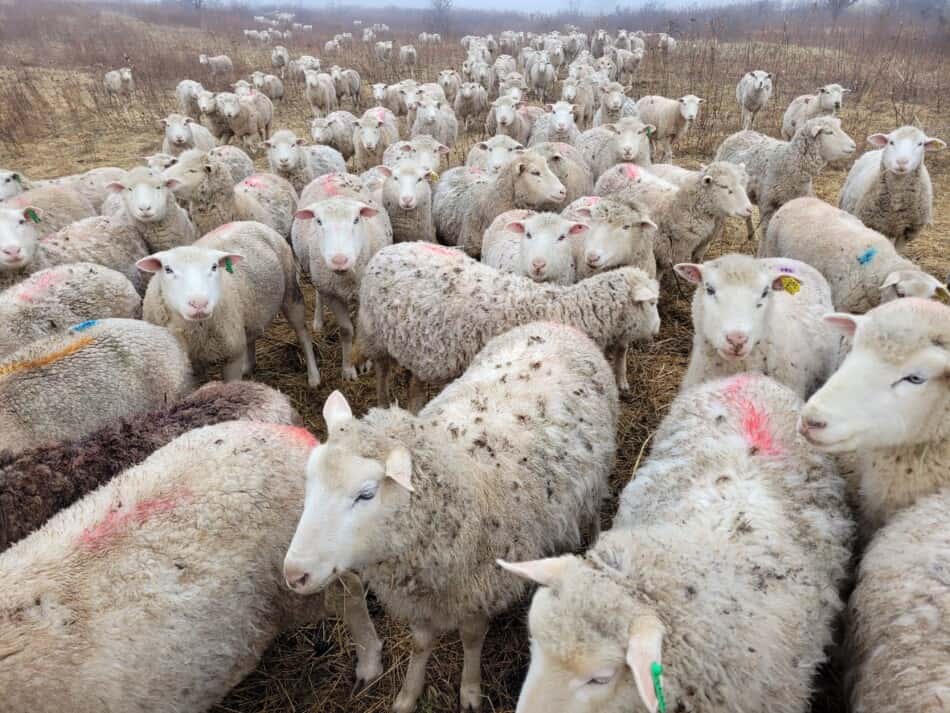
Sheep need shepherds to provide food
For domestic sheep, the main day to day need that the shepherd provides for them is food.
In the nice weather when the grass is growing, sheep can mostly take care of getting their own food, so the shepherd does not have much to do other than make sure the sheep can get what they need.
In the non growing season, however, the shepherd if often the sole source of food for the flock, providing hay and possibly grain that the sheep would otherwise have.
The folks that tend to think that animals in the wild are better off tend to think of the nice weather and only healthy animals, but forget about mid or late winter with frozen ground and weeks until food.
That’s when even the wild sheep would like some hay!
Sheep that need medical care need the shepherd
Sometimes sheep get hurt or have a health problem that requires medical attention, which most shepherds can provide as long as the problem is basic.
If the sheep more needs advanced medical care, the shepherd can get in a vet. This could be for an injury or for problems that the shepherd has been trying to fix but can not get sorted himself.
Common reasons that sheep would need care are:
- injury
- worms
- foot problems
Shepherds make breeding stock selections
Another aspect of sheep that you may not be aware of is the potential for inbreeding, this means breeding of closely related parents.
Sheep do not look at family relatedness the way we do, to an adult sheep another adult sheep is just another sheep, whether they are related or not does not matter.
This means that rams will breed their daughters, sons will breed their moms, siblings will breed and any combination you can think of in between.
As much as we (people) do not like to think of it, inbreeding, when carefully done, has it’s place in breeding stock.
However, if the inbreeding is not carefully planned and monitored, then it’s just a mess that usually results in health problems and a bunch of poorly performing sheep.
Especially if the flock is small in number, that makes problems that come about from inbreeding, show up fairly quickly.
Other of my sheep articles that may interest you:
Why Do Sheep Have Paint On Them?
Looking for another great site about sheep? Check out Sheep 101 and Sheep 201. Sheep 201: Shepherding Skills is an article that lists out quite a few of the things shepherds do for sheep.
